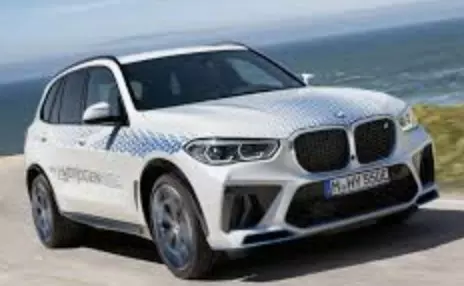BMW's Hydrogen Revolution: Accelerating the Future of Clean Mobility
Key Ideas
- BMW plans to launch a hydrogen-powered SUV in 2028, emphasizing benefits like zero emissions, instant torque, and quick refueling times.
- The company collaborates with Toyota to enhance fuel cell systems, aiming for economies of scale and technical efficiency.
- Global hydrogen infrastructure, including in Europe, Japan, South Korea, and Australia, is slowly expanding, projecting substantial market growth by 2033.
- BMW's CEO advocates for a diversified production strategy, including internal combustion engines, battery electric vehicles, and hydrogen fuel cell vehicles, to navigate the evolving mobility landscape.
BMW is renewing its focus on hydrogen fuel cell technology by unveiling plans to introduce a production-ready hydrogen-powered SUV in 2028. This move represents a significant milestone for BMW as it transitions from prototype development to mass production in the hydrogen vehicle sector. Led by Dr. Jürgen Guldner, BMW's hydrogen program aims to address the challenges faced by electric vehicles, such as long charging times and inadequate infrastructure in key markets. The advantages of fuel cell technology, including zero tailpipe emissions, instant torque, and rapid refueling comparable to gasoline cars, make it an appealing option for regions with limited EV infrastructure. The partnership with Toyota on fuel cell systems underscores BMW's commitment to achieving economies of scale and technical advancement. Globally, the hydrogen infrastructure is slowly expanding, with notable progress in Europe, Japan, South Korea, and Australia. Despite the industry's growth, widespread adoption of hydrogen vehicles remains hindered by limited infrastructure and high costs, as highlighted by companies like Honda. BMW's CEO, Oliver Zipse, emphasizes the importance of maintaining a diversified production strategy to remain competitive amidst evolving regulatory landscapes and shifting consumer demands. The company's flexible approach, encompassing internal combustion engines, battery electric vehicles, and hydrogen fuel cell vehicles, reflects a strategic vision for sustainable mobility. BMW's long-term commitment to hydrogen signifies a proactive stance in navigating the future of clean energy in the automotive sector.
Topics
India
Clean Energy
Infrastructure
Sustainability
Automotive Industry
Partnership
Future Technology
Global Market
BMW
Latest News
